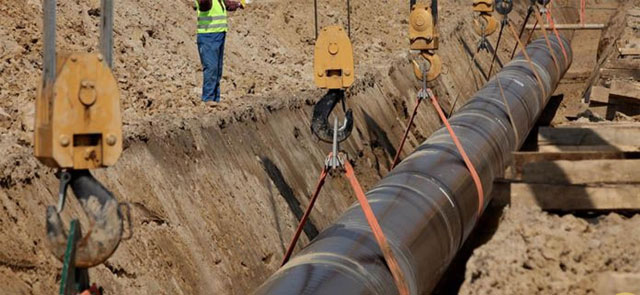
Kampala, Uganda | THE INDEPENDENT | The lack of harmonized messages has triggered controversy among communities that are awaiting compensation from the East African Crude Oil Pipeline-EACOP project in the affected districts of the greater Masaka sub-region.
Lwengo, Sembabule, Kyotera, and Rakai districts are part of the ten districts through which the proposed pipeline will pass to connect the oil wells in the Albertine region of Uganda towards the refinery at Tanzania’s port of Tanga. At least 1,901 people out of a total of 3,792 persons who will be affected in the route opening, are residents within the four districts of greater Masaka, in which the East pipeline was demarcated to pass.
However, the project is veiled with exaggerated expectations and fears among the affected persons, who are now waiting for the government to compensate them for the loss of their properties that are positioned within the corridor of the planned East African Crude Oil Pipeline.
Paulicio Ssonko, a member of a local Resettlement Committee in Sembabule district says that the several groups of project affected persons-PAPs have got different understanding and insights about the project, which he says was created by the implementers who lacked coherence in their communications.
He alleges that the companies that carried out the evaluation of PAPs and demarcation of the pipeline route were not consistent in the messages and guidelines they gave to communities, especially in regards to the required portion of land and the cutoff date for utilization of the land that will be taken up. Many people, according to Ssonko, abandoned chunks of their land after the demarcation and are now demanding compensation.
Rosemary Nasakagga, a community-based social rights monitor with the Women Support Initiative- a civil society organization operating in Lwengo district, argues that the locals did not get enough time to interact with oil companies and other auxiliary contractors, which led to misinterpretation of key facts about the project.
She explains that part of the problem arose from the delay between the time of the evaluation, the route demarcation and the physical commencement of the project work including compensation of the Project Affected Persons. According to her, such a long period has created room for distortion of information, as well as leaving so many unanswered questions, something that has brewed anger and impatience in the community.
Florence Nakandi, one of the PAPs in Ndagwe Sub-county of Lwengo district argues that apparently, the communities have conflicting thoughts about the social-environmental impacts of the project; which have not yet been clearly elaborated to them. She prefers that the oil companies translate the environment social impact assessment reports into the local languages to enable the communities to fully understand the details.
Engineer Herbert Mugizi, the Senior Petroleum Engineer at the Ministry of Energy and Mineral Development, says some of the inconsistencies are a result of procedural interruption of the project activities which occurred in 2019.
He, however, adds that government and all project implementing partners currently working out of modalities fixing all the cited gaps, towards ensuring the project moves on as intended without any encumbrances, and that the government will listen and address all public fears regarding the project.
*******
URN
 The Independent Uganda: You get the Truth we Pay the Price
The Independent Uganda: You get the Truth we Pay the Price





